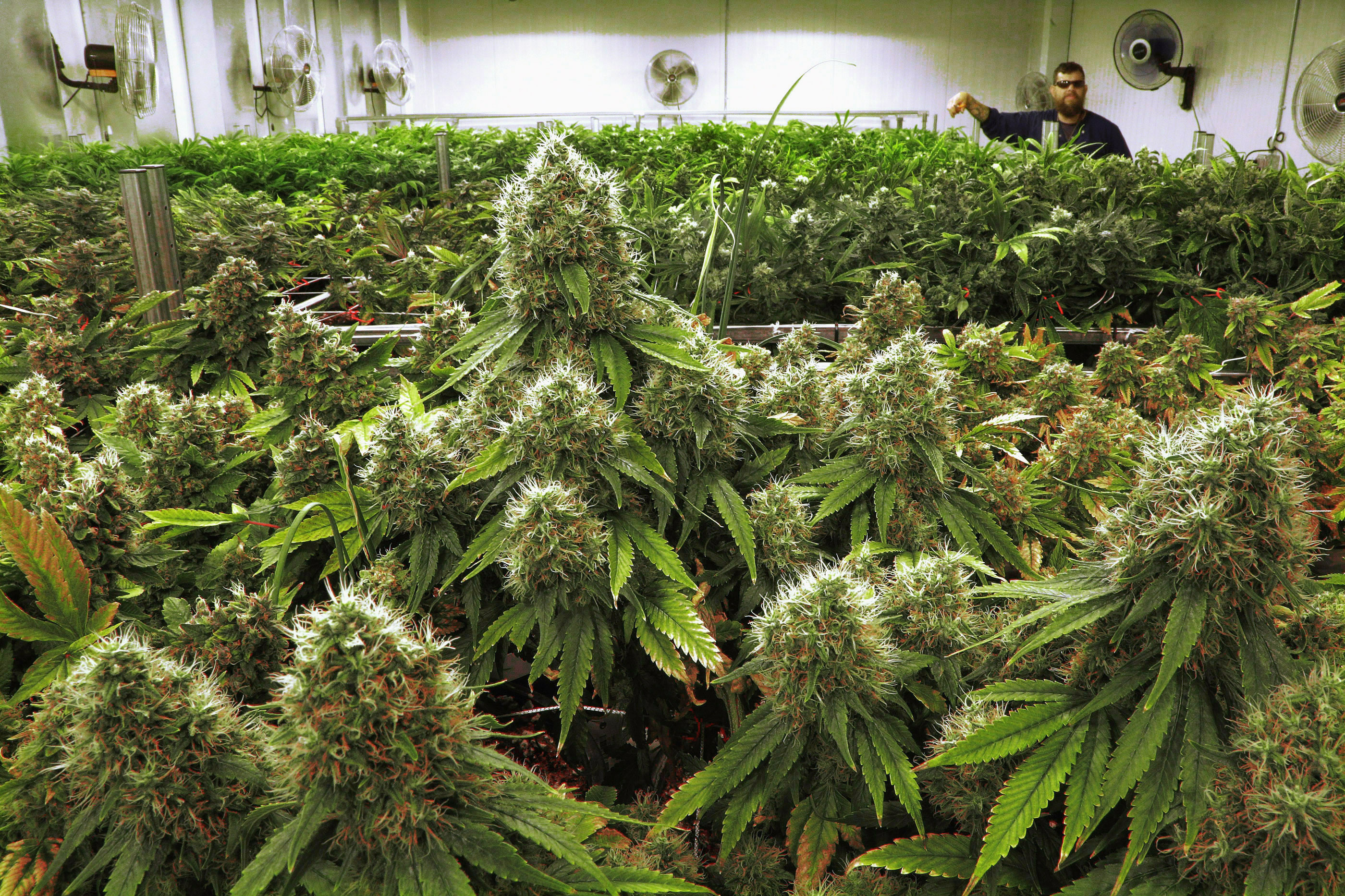
Medical cannabis helped nearly half of patients get off their anxiety medications after six months, according to a Canadian study conducted at a cannabis-focused treatment center.
The observational study, “Reduction of Benzodiazepine Use in Patients Prescribed Medical Cannabis,” published in the peer-reviewed journal Cannabis and Cannabinoid Research, was undertaken at Toronto‘s Canabo Medical Clinic, owned and operated by Aleafia Health, a Vaughan, Ontario-based cannabis cultivation and research company. Benzodiazepines are pharmaceutical drugs prescribed to treat anxiety disorders and seizures; common trade names they are sold under include Ativan, Klonopin, Valium, and Xanax.
“The study results are encouraging, and this work is concurrent with growing public interest in a rapidly developing Canadian cannabis market,” said Chad Purcell, lead author of the study and a medical student who also holds bachelors degrees in pharmacology and pharmacy.
Medical cannabis helped nearly half of patients get off their anxiety medications after six months, according to a Canadian study conducted at a cannabis-focused treatment center.
The study is significant because of increased interest in the potential of cannabis products to alleviate the ongoing opioid addiction crisis. Aleafia Health’s Chief Medical Officer, Dr. Michael Verbora, said they found the results of the study remarkable in that nearly one out of every two patients were able to stop taking pharmaceutical anti-anxiety medications after six months, some even sooner.
“The opioid crisis gets a lot of air time, but people don’t always realize that behind the [opioid] crisis is benzodiazepine addiction and overuse of antidepressants,” Verbora said. “By offering a safer alternative like cannabis, we can keep people away from addictive substances.”
With depression and anxiety on the rise, scientists are taking a close look at the impact of cannabis on the regulation of serotonin, sometimes called the “happy molecule.” experts say. The ability of the tightly-controlled endocannabinoid system to regulate the body’s serotonin is already well established, suggesting that cannabis can help treat depression and anxiety.
Cannabis May Increase Serotonin Levels
“A lot of the medications we use to treat depression work by changing the amount of serotonin that’s available for the brain to utilize,” Verbora said. “Cannabinoids may increase serotonin levels in certain conditions and reduce them in others.”
Serotonin is one of the neurotransmitters, or chemical messengers, that carry signals between brain cells and is involved in the regulation of a variety of processes within the brain, including depression, mood, emotions, sleep, appetite, anxiety, memory, and perceptions. Many researchers believe that an imbalance in serotonin levels may influence mood in a way that leads to depression.
Many researchers believe that an imbalance in serotonin levels may influence mood in a way that leads to depression.
“There’s an interesting relationship between serotonin and cannabinoids. We don’t know exactly how they work together or which one may regulate the other or if it’s a bit of both,” Verbora said.
Referring to a study published in the European Journal of Medicine in March 2018 that followed nearly 3,000 cancer patients who used cannabis for a variety of cancer-related symptoms for over six months, Verbora focused on the patients’ state of mind.
“What was interesting to me was that over 80 percent of the patients in the study specifically said that when it came to depression and anxiety, they reported a marked improvement in both,” Verbora said.
Researchers from McGill University in Montreal and the University of Oxford in England published a study in the American Medical Association journal JAMA Psychiatry on Feb. 13, 2019, that linked cannabis use among adolescents to increased risk of depression and suicide (but not anxiety) in adulthood. The results, based on 11 studies, show associations and not causal links.
“While there is some data that says if you use cannabis, a lot of it, and it’s smoked, there’s an association potentially. But it’s marginal, meaning that there will be a very small chance of an increase in depression and anxiety later in life,” Verbora said. “It is really hard to say definitively that cannabis causes it, but there is an association.”
Clinical Research Would Provide a More Clear Picture
Although the 50,000 patients Aleafia has treated with medical marijuana in the past five years have consented to the collection of their medical information for observational studies, Verbora said much more could be done if there were more clinical research going on.
“Due to regulatory hurdles and lingering stigma, there is still a shortage of medical cannabis research, especially about depression,” he said.
Nearly one-half of those diagnosed with depression are also diagnosed with an anxiety disorder.
While anxiety disorders are the most common mental illness in the United States, depression is not far behind; they are often lumped together. Nearly one-half of those diagnosed with depression are also diagnosed with an anxiety disorder.
The World Health Organization reported in 2017 that some 300 million people worldwide are affected by depression. In the United States, an estimated 16.2 million adults have experienced depression, as well as a growing number of teens and young adults.
With additional studies linking certain antidepressants and anti-anxiety medications with dementia, Verbora and his colleagues say the time is ripe to find alternatives.
“As much as we can get patients away from potentially harmful drugs and onto safer substances like cannabis, I’d say we’re doing our jobs properly,” he said.











